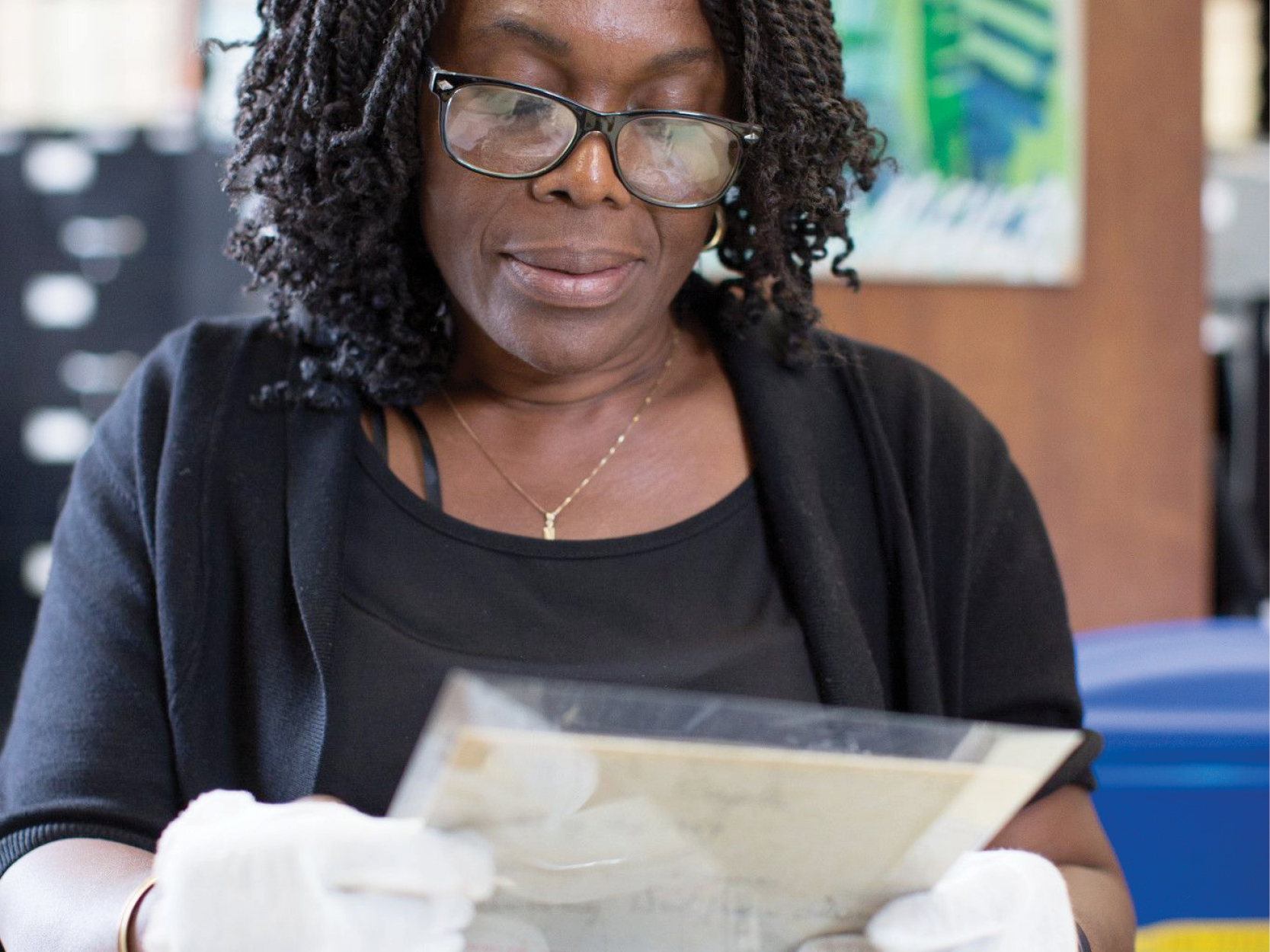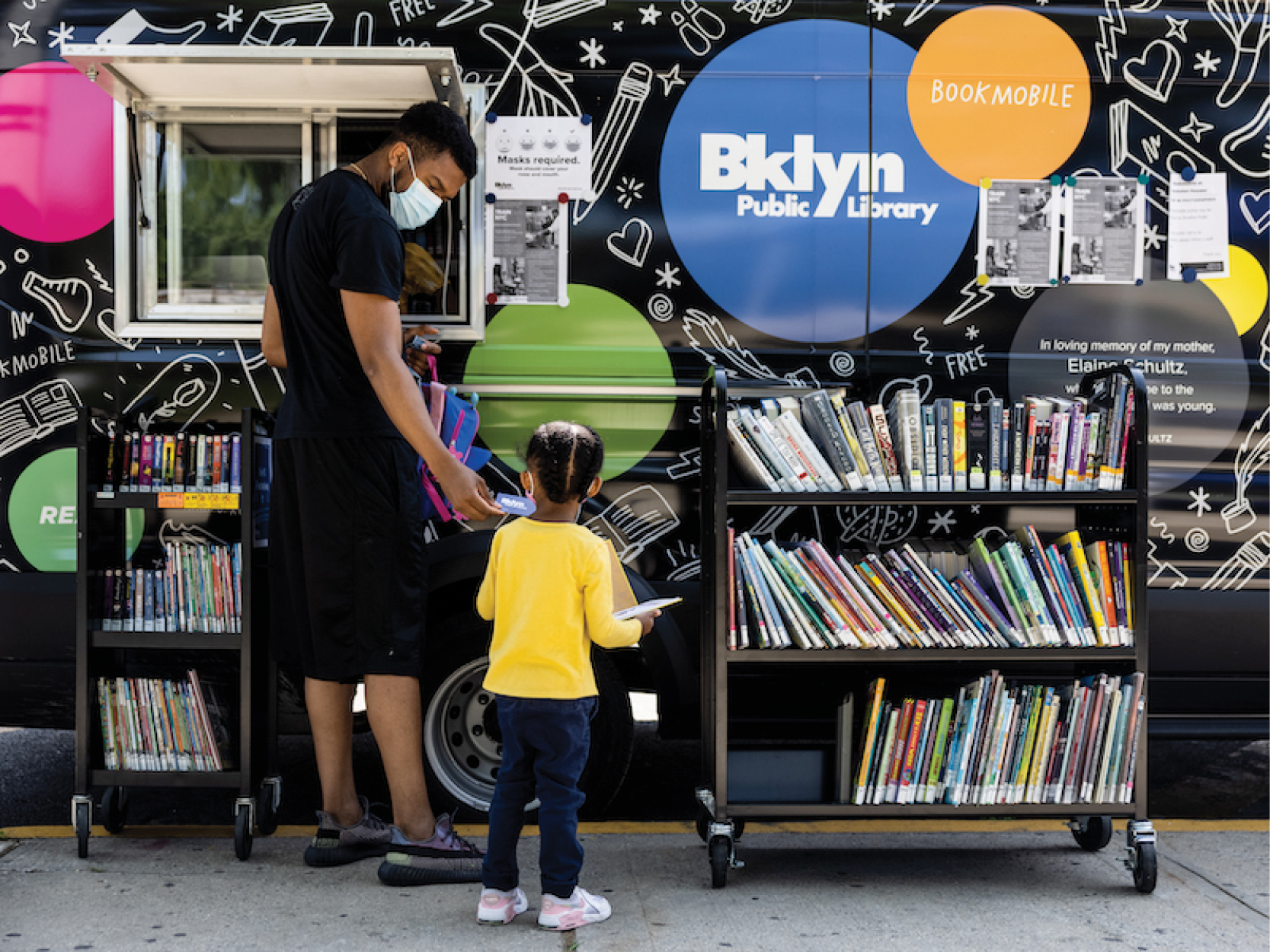
To celebrate 200 years of our beloved bard, Brooklyn Public Library hosted a range of activities, from beard contests to poetry readings, to several reverential posts on this very blog.
Each event referenced a fragment of the characterological mosaic of Walt Whitman with the hope of conveying some fraction of the immensity of his cultural legacy. Up to this point, we have honored Whitman as the author who gave voice to the soul of our borough, but what about the Whitman who embodied that same spirit as a worker? What about the entrepreneurial drive that animated and informed the artist for 31 hardscrabble years prior to self-publishing the first edition of his magnum opus? It is to this Whitman, who joined the workforce during another age of churning economic development in Brooklyn, that we offer this ode--in partnership with BPL’s Business and Career Center, to remind everyone that the creative spirit is precisely what drives being in business.
Consider this line from “To the Workingmen” Whitman’s anthem for freelancers:
“Neither a servant nor a master am I;
I take no sooner a large price than a small price—I
will have my own, whoever enjoys me;
I will be even with you, and you shall be even with
Me.”
While America’s poet is known primarily for being free with his verse, Whitman was, even by the standards of the gig economy, also quite free with his lance. Between the years 1830 and 1850, Walt Whitman held no less than 7 different job titles, including schoolteacher and seemingly every position in the newspaper industry. His jobs in the industry ranged from founder (and delivery boy) of the Long-Islander to his eventual rise to editor of the Brooklyn Daily Eagle and this all before he set pen to paper on Leaves of Grass (circa 1850). Much like contemporary creative entrepreneurs, Whitman’s writing was a hustle relegated to the side, thanks to the more absorbing work of avoiding poverty for the first three decades of his life. Over the next quarter century he would engage in three additional, major career changes, including soldiers’ missionary and multiple government clerkships--after having been denied one such post, despite a glowing letter of recommendation from Ralph Waldo Emerson, and fired from another, because Leaves was considered immoral.
Whitman also undertook dramatic career shifts at various points to beef up the skills section of his resume, echoing moves that may feel familiar to many working professionals who came of age during the Great Recession. Job displacement resulting from a fire in the publisher district in 1836 and an economic collapse (the Panic of 1837) derailed his career in the newspaper business for a time. Aged 18 at this point, he retreated closer to his family on Long Island to become a schoolteacher--a position that would provide him job security, but never soul-filling satisfaction. As a consequence, his stint as a teacher lasted only five years and is also the period in which he founded the short-lived Long-Islander . There, he humorously began publishing essays and pseudoscientific wellness tracts until the newspaper industry rebounded, allowing him to return to NYC in 1841.
Befitting a period of job market recovery, Whitman’s resume during the early ‘40s is peppered with short stints at various news outlets as he amassed experience. During this time he also dabbled in and supplemented his income by writing “temperance novels” like Franklin Evans, which though he later disavowed it, actually sold more copies than Leaves of Grass during his lifetime. Whitman may also have even engaged in flipping houses--though with rent rates and property values ever rising, who among us has honestly not thought of getting their real estate license? He would, however, finally devote himself seriously to journalism when he returned to Brooklyn as lead editor of the Brooklyn Daily Eagle in 1846, where he would serve for two years until his firing in 1848.
Little of Whitman’s experience of the 19th Century gig economy seems to be known in the 1850s. Perhaps riding the crest of his preceding period of stable employment, much of Whitman’s biography during the decade is devoted to his journey down the Mississippi to New Orleans and his growing affection for theater and opera: in other words, his ‘Bohemian Years’ and their relation to his increasingly ecstatic humanism. Crucially, since this period also corresponds precisely with his authorship and self-publishing of Leaves of Grass, re-published twice more before the end of the decade, the ‘50s might be aptly characterised as Whitman’s ‘book leave’ decade. Yet, such halcyon days notwithstanding, financial pressure once again forced him to return to work as a journalist in 1857, where he remained essentially until the outbreak of the Civil War.
Over the next decade of his professional life Whitman capitalized on his varied work history and diverse range of skills. In 1862, concerned for the well being of his brother George whose name was published on a list of wounded soldiers, Whitman traveled south to verify his health. He was so profoundly moved by his proximal contact with the brutality of conflict that he began ministering on a volunteer basis as a “Soldiers’ Missionary”. Whitman would later seek a government post in Washington, D.C. and in 1865, after a series of fits and starts in other clerkships, eventually landed a position interviewing ex-Confederate soldiers for pardon in the Office of the Attorney General--the combination of his literary renown and his recent volunteer work doubtless contributing to his hiring. After both a desire for and resulting from the economic stability gained from his government employment, Whitman was forced to leave his job in 1872 to provide care for his ailing, elderly mother. This career change would constitute his last and would transition him into the two remaining decades of his life in which writing and lecturing would for the first time be his primary means of income.
And here finally arrives the Whitman we know and love: Whitman the “good gray poet.” It is important, however, to recognize this Whitman as the product of 53 years of struggle and side-hustle; of career change and starting over; of volunteering and unpaid leave to pursue a passion project; of moving back in with family; of unpaid care for a sick relative; all prelude to his becoming the legendary author. On the occasion of the 200th anniversary of his birth, this Whitman--Whitman the worker, feels more relevent than ever. And this aspect of his spirit, which perhaps hews more closely to both his self-regard and self-presentation, feels worth celebrating for that reason.

For the 1855, self-published edition of Leaves of Grass Whitman commissioned an engraving for inclusion on the frontispiece in which he is shown “in workman's clothes, shirt open, hat on and cocked to the side, standing insouciantly and fixing the reader with a challenging stare”. Though he left his name off the collection on the title page, he describes himself proudly within the text as "an American, one of the roughs, a kosmos, disorderly, fleshly, and sensual, no sentimentalist, no stander above men or women or apart from them, no more modest than immodest"--a description with more than a passing resemblance to the subject of his paean “To the Workingmen” and clearly aimed at unifying his worker persona with that of his authorial self.
If Whitman saw distinction neither between his creative persona and his worker persona, nor between himself and his worker fellows, it is likely because he recognized a fundamentally entrepreneurial spirit uniting workers of all types. Perhaps Whitman took this idea further towards acknowledging that the same creative spark enabling working people to remake themselves for the job market each day as that which enabled him to pursue his writerly ambition for the better part of his lifetime. And it is perhaps therefore true that the same entrepreneurial spirit Whitman admired in workers then extends to the growing community of creative workers in the gig economy now. Whitman would undoubtedly admire the fearless freelancers who call Brooklyn home, as well as the labor that remakes the borough time and again; he would recognize that it is precisely this cycle of storm and stress that preserves and renews its spirit.
If you carry the Whitman spark, but hope to earn your creative leave before you reach ‘good, gray’ status, you are in luck! The Business and Career Center offers the following programs designed specifically to assist the Whitmanesque entrepreneurs out there:
Coming up on June 14th, 2019, Celebrate Small Business in Brooklyn with this free mini-conference. Celebrate Small Business occurs annually, but this year is directed specifically towards the creative entrepreneurs who continue to shape the character of our borough today. So sharpen your business skills, expand your networks and develop the tools you need to thrive in the creative economy.
Or, if you're just getting started down your job path, join this presention on Succeeding in Your First Job on June 12th. Discuss employer expectations and receive tips and advisement to help you make a good impression, avoid missteps, and have a great experience in your first paid position.
On June 18th, join this job advice workshop geared specifically to the LGBTQ+community of workers This Job Advice Is Gay.
Win seed money to start your business with the PowerUp Business Plan Competition, one of the few funding sources out there that educate and counsel you as part of the process of seeding your business idea.
Learn what it takes to create a viable fashion business at the BKLYN Fashion Academy! Twenty (20) aspiring women's wear designers are selected to participate in a 16-week intensive program. They receive mentoring from industry experts and attend classes on sustainability, sourcing, accessories design, market research, and more, while creating a miniature collection to showcase on the runway!
Making a career change, or several, can be a stressful experience, but you don’t have to go through the process alone, attend a 1-on-1 Resume & Career Help session for resume help, education and career advice, interviewing prep, LinkedIn tips, and more, with a Job Information Resource Librarian. This service is currently available at Central as well as 22 other branches. Visit this link to access the full schedule.
If you are unable to participate in these excellent programs or are perhaps more of a Whitman-styled autodidact, the Business and Career Center has you covered there as well with these two booklists: Succeeding as a Creative Entrepreneur and Arts Entrepreneurship.
This blog post reflects the opinions of the author and does not necessarily represent the views of Brooklyn Public Library.
Soul-filling satisfaction? I
Post a Comment
While BPL encourages an open forum, posts and comments are moderated by library staff. BPL reserves the right, within its sole discretion, not to post and to remove submissions or comments that are unlawful or violate this policy. While comments will not be edited by BPL personnel, a comment may be deleted if it violates our comment policy.
eNews Signup
Get the latest updates from BPL and be the first to know about new programs, author talks, exciting events and opportunities to support your local library.







